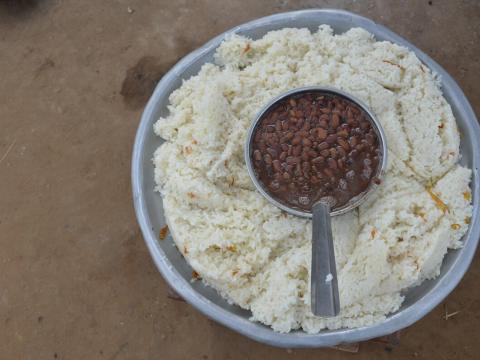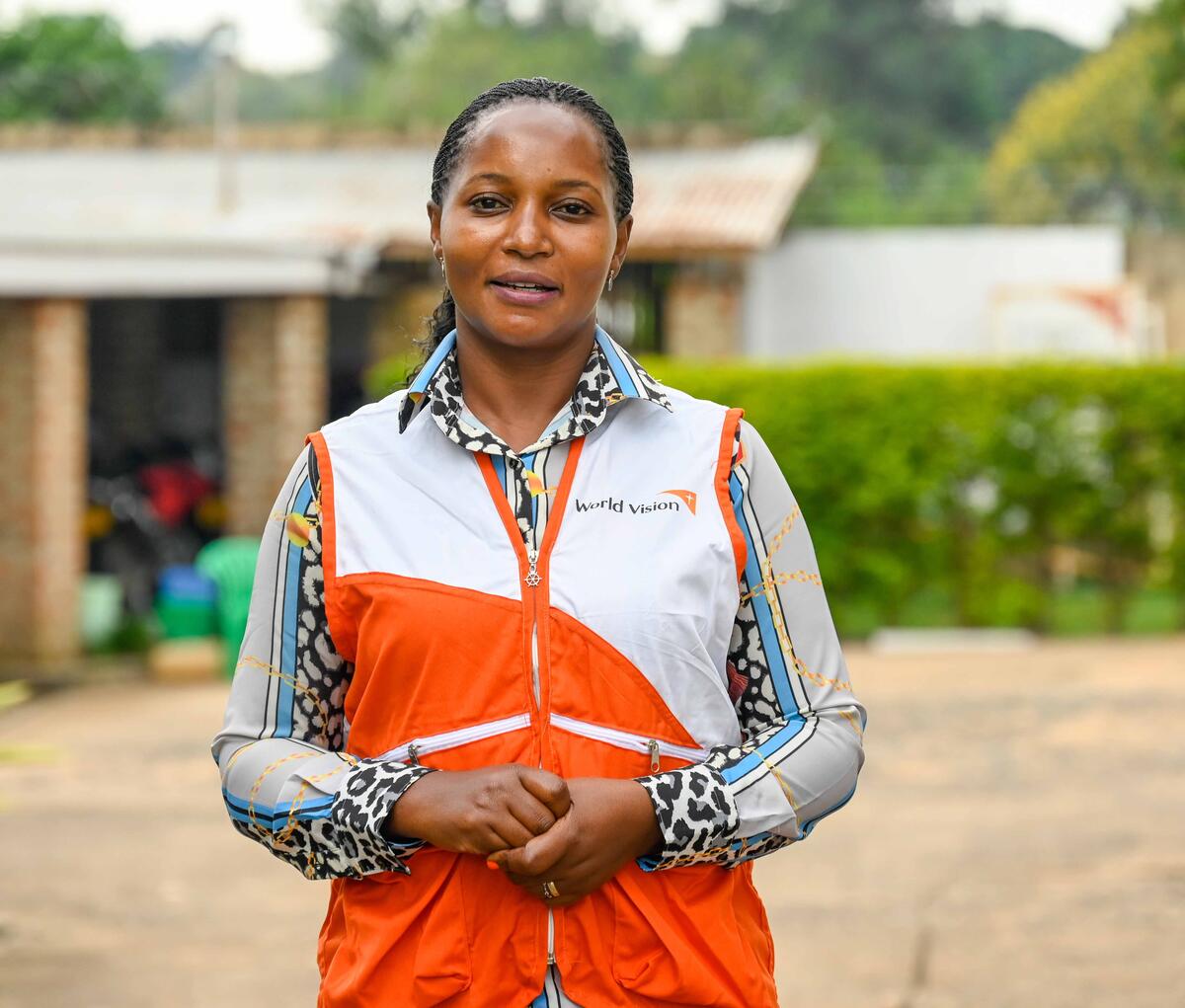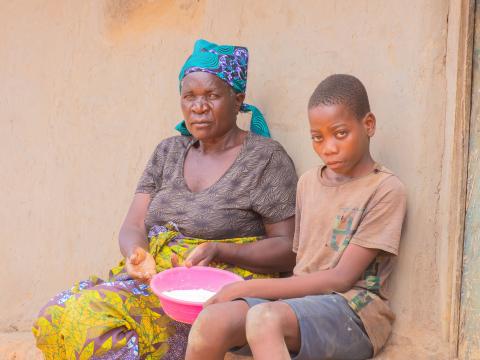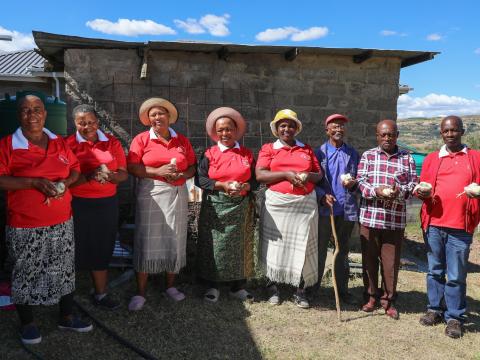
Reeling from rising prices is a shared experience
On World Food Day, Mary Njeri reflects on the effects that rising food prices are having close to home and on people worldwide.
As I settle into my new role with World Vision as Director of our Global Hunger Response, I am also settling back into my hometown of Nairobi, Kenya. I left a thriving and growing economy five years ago but returned to find my neighbours reeling from the ongoing socioeconomic impacts of COVID-19, the effects of climate change on our food sources, and the indirect consequences of other conflicts, such as the war in Ukraine, contributing to rising costs for us.

An informal survey recently conducted by World Vision shows that a basket of 10 everyday food items in Kenya costs 9% more today than just a year ago. Data from Kenya's National Bureau of Statistics validates this finding, documenting record inflation in September (9.2%), up from 8.5% in August. However, some jumped even more drastically, with the prices of maize flour, wheat flour, and cooking oil increasing by 48.7%, 43.3%, and 40.8%, respectively.
To cope with this, I'm seeing people adopt all manner of strategies, such as returning to their villages, unable to cope with the high cost of living in Nairobi; being forced to make their children drop out of school because they can't afford the fees; sending their children out to find casual work to help support their families; reducing the number of meals the family eats in a day; changing what they eat to cheaper, less healthy foods; begging; engaging in petty theft; borrowing money; and other negative coping mechanisms.
My neighbour, Jirani, as I fondly call her, is a widow supporting four children and a grandchild. Over the last three years, she has severely suffered from the direct and indirect impacts of COVID-19 and the pandemic on her health, livelihood, and family. She contracted COVID-19 in 2021, leaving her bedridden for four months with damaged lungs and weak leg joints. This prolonged illness and subsequent health condition has dramatically affected her ability to manage her small farm, which she relies on to feed her family. She also must support her 22-year-old daughter, who can't find a job and has a 1-year-old son. Jirani's son, a boda-boda (motorbike) taxi and delivery driver, used to help support them. Unfortunately, his income has also reduced drastically as his former customers lack the money to pay him or walk the two kilometres to the main road to save the KES50 (~US$0.41) fare for more pressing needs.
Her small shop is also not doing well because she can't afford to keep it stocked due to the lower profit margin she earns due to the rising costs. Furthermore, she doesn't know whether she'll be able to sell her stock since her customers can't afford to buy as much, even necessities. As a result, she barely earns US$ 4 a day now.
She recently told me: "At home, I have long stopped buying things such as eggs, bread, and meat. These are now luxuries that we cannot afford. We are basically surviving just a day at a time."
Jirani's youngest daughter, just 17 years old, has turned to selling porridge to construction workers to help supplement the family's income, shelving her dream of becoming a computer programmer until things get better, if they ever do.
The Global Hunger Response's newly released report, Price Shocks, an update to World Vision's 2021 review of how COVID-19 triggered a pandemic of child malnutrition and how to prevent this from happening, shows that this isn't just something affecting my neighbours and community. Even though global food prices have declined minimally in the last few months, they are still at historic levels, and a comparison of food prices in places where we work shows an overall rise of 14% between this year and last. However, some areas are harder hit than others. For example, in neighbouring Sudan, food prices rose by 143%, with a food basket costing a Sudanese person the equivalent of nine days' worth of work versus just 4.2 hours in Spain.
Urgent action is needed now if we are to mitigate the hunger crises infiltrating all parts of the world. Children are the most at risk in this crisis, suffering long-term impacts that will affect their entire lives.
You can help families like Jirani's from having to make dangerous survival choices and decisions that will have lasting harmful consequences for girls and boys. Visit our Global Hunger Response page to learn how.
Mary Njeri is Director of World Vision's Global Hunger Response.


